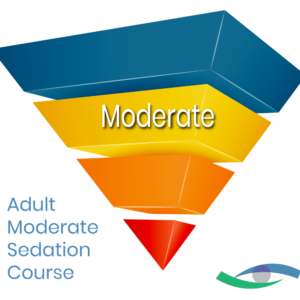How Marijuana Can Affect Anesthesia & Sedation
Studies have revealed a link between marijuana use and increased anesthetic requirements. With its legalization, many individuals are indulging in marijuana use. But what many don’t realize is that their habits may have significant implications for medical procedures, particularly those that involve sedation and general anesthesia. In fact, it’s been discovered that marijuana users may require ten times more anesthesia than non-users during surgery.
Why? It has a lot to do with the endocannabinoid system.
The Endocannabinoid System, Marijuana Use and Sedation
At its core, the ECS is a complex cell-signaling system. It comprises cannabinoid receptors, naturally designed to interact with substances we produce. Now, here’s the thing: marijuana can interact with these receptors. In fact, it’s been proven by studies that the more frequent and heavy the marijuana use, the more saturated these receptors become.
The result? A possible cross-reaction between cannabinoid receptors and opioid receptors. In simple language, it might mean that standard pain medications, especially opioids, might not work as effectively on frequent marijuana users.
Other Risks Involved in Marijuana Use and Sedation
Unfortunately, the risks don’t stop there. Recent findings point out a few more alarming concerns.
Heavy marijuana users often have difficulty emptying their stomach contents prior to surgery. This is a concern as the delay can increase the risk of stomach contents reaching the throat and the lungs.
Moreover, people with a history of heart problems should be extra careful. Consuming marijuana just an hour before anesthesia might raise their chances of having a heart attack during surgery.
What You Can Do as a Patient
Now, if you’re a marijuana user and scheduled for a procedure, don’t worry. There are still a few things you can do to prevent complications from happening.
For starters, be upfront and candid about your cannabis consumption with your healthcare provider. That said, fully disclose your marijuana consumption habits. Be specific about the product, how frequently you use it, the dosage, and the last time you’ve consumed it. By doing so, your healthcare provider can adjust their approach so they can ensure your safety during and after the procedure.
Another measure is to consider a break from marijuana use. A general rule of thumb is to abstain for a few weeks before the surgery to reduce the saturation of your cannabinoid receptors. Again, it would be best to talk to your healthcare provider about this so that they can give you more tailored medical advice
What You Can Do as a Practitioner
Understanding the effects that marijuana use could have during any level of sedation can be very beneficial. Having judgment-free conversations with the patient before sedation can help encourage them to be open about their marijuana consumption.
The National Sedation Center offers comprehensive courses to provide a solid foundation for practitioners to provide minimal and moderate sedation, but staying up-to-date on possible outliers when it comes to patient history can be critical!






